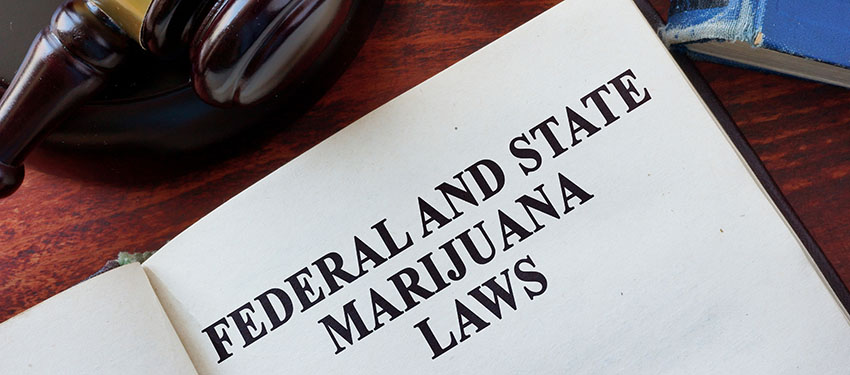Arizona voters resoundingly passed Proposition 207 on Nov. 3, 2020. This law legalizes the recreational use of marijuana in Arizona by adults ages 21 and older. It also offers some important remedies to people who have certain types of marijuana charges, or convictions, removed from their records.
Prop 207 allows people to petition for their marijuana convictions to be expunged so that they will no longer appear on their criminal records.
At the Shah Law Firm, attorney Arja Shah is prepared to help people to have their marijuana charges or convictions expunged.
Understanding Arizona Proposition 207 Expungement Provision
Proposition 207 adds a number of statutes to Arizona’s state laws. One of these statutes is ARS 36-2682, which states that people who have been arrested, convicted, or adjudicated for specific marijuana offenses to petition the court to have their records related to those offenses expunged. The eligible offenses include the following:
- Possession or consumption of two-and-one-half ounces or less of marijuana
- Cultivating, transporting, possessing, or processing six or fewer marijuana plants in a private home
- Possessing, transporting, or using drug paraphernalia that is associated with marijuana
Thousands of Arizonans have these types of convictions on their records and may benefit from petitioning the courts to have their records expunged.
Let Attorney Arja Shah Help Remove a Marijuana Charge Off Your Record. Call Now at (602) 560-7408

What is an Expungement or Set Aside?
In some states, people can have their records expunged. This is a process to remove charges or convictions from criminal records. In Arizona, however, most criminal charges, arrests, and convictions are not truly expunged but are instead set aside. This means that they are no longer recognized as criminal convictions. While set-aside convictions still appear on your record, it will reflect that they have been set aside and should not be used as evidence that you have a conviction on your record.
With the new expungement statute in Prop 207, however, people with qualifying marijuana convictions may apply for a marijuana expungement. If the court grants your expungement petition, the clerk of the court will seal all of the records about the arrest or conviction. Only you or your attorney will be able to access the expunged records.
The Department of Safety, the agency that arrested you, and the prosecutor’s office will also be notified to remove marijuana charges from your record and to seal them.
Once it is sealed, it will not be released as part of a background check. Only you and your attorney will be able to access the expunged record once it has been sealed. This means that you will be allowed to truthfully state that you do not have to report the conviction or arrest on job applications. Prospective employers that perform criminal background checks will also not see your expunged marijuana conviction.

When Can You Apply to Have a Marijuana Conviction Expunged in Arizona?
Under Proposition 207, people will be able to petition the court to ask for their marijuana convictions and arrests expunged beginning on July 12, 2021. The expungement provision applies to convictions and arrests for qualifying offenses that occurred before the passage of Prop 207 by voters.
This new statute could provide significant relief to tens of thousands of Arizonans who have marijuana convictions on their records.
How does the Set Aside / Expungement Process Work to get Marijuana Charges Off My Record?
The new law outlines a specific process that people with qualifying convictions can go through to seek to have marijuana arrests and offenses from their records. Beginning on July 12, 2021, you can file a petition for expungement with the court in which you were convicted or where your arrest occurred. Once your petition has been filed, the court will notify the prosecutor’s office. The prosecutor will be given 30 days to file a response to your petition.
If the prosecutor objects to your petition, either you or the prosecutor may ask for a hearing to be scheduled. The court will schedule a hearing if it determines that there are genuine issues of material fact that are under dispute.
What is a Burden of Proof?
At the hearing, the prosecutor will have the burden of proving by clear and convincing evidence that your petition for expungement should not be granted. If the prosecutor cannot meet the burden of proof, the court will grant your petition for expungement. In criminal cases, the prosecutor’s burden of proof is beyond a reasonable doubt. However, an expungement petition requires a lower burden of proof than a prosecutor’s criminal case burden of proof. However, clear and convincing evidence is a slightly greater burden than the burden of proof required in other types of civil cases, which is by a preponderance of the evidence.
By a preponderance of the evidence means that a plaintiff proves that it is more likely than not to have occurred in the manner that the plaintiff argued. The Supreme Court of the United States defined the clear and convincing evidence standard in Colorado v. New Mexico, 467 U.S. 310 (1984). Clear and convincing evidence means that it is substantially more likely than not to have occurred in the way that it is argued to have happened. This means that while the prosecutor’s burden of proof in arguing against an expungement petition is less than what he or she might otherwise have to meet in criminal matters, it is still greater than the burden of proof in other civil matters.
If the court finds that the prosecutor has failed to meet the burden of proof, your petition will be granted. The court’s written order will be issued or written as a minute order.
What Happens After the Judge Grants a Set-Aside?
The judge’s order granting a petition for expungement will include the following things:
- Statement that the conviction or adjudication is vacated
- Statement that the arrest, conviction or adjudication, charge, and sentence are expunged
- Statement that the person’s civil rights are restored unless he or she is otherwise ineligible
- Requirement for the clerk of the court to notify the arresting agency, the prosecutor’s office, and the Department of Public Safety
- Requirement for the clerk of the court to seal all of the records related to the arrest, charge, conviction, and sentence and to make them inaccessible to anyone other than the person whose record was expunged and his or her attorney
Once the Department of Public Safety is notified about the expungement, it will seal the record and separate it out from its other records.
DPS will then notify federal and state law enforcement agencies that the record has been expunged. The agency is allowed to charge a reasonable fee to perform the search of its records and to correct them by removing the expunged information.
The prosecutor’s office and the arresting law enforcement agency will also be required to seal and separate the expunged information from their records. They will not be allowed to provide access to the information to anyone other than the person or his or her attorney.
Finally, any expunged record under the new law may not be used by the police, the court, or a prosecutor for any reason.
For example, if you have a marijuana conviction expunged and later are charged with a new offense, the expunged conviction cannot be used to increase the penalties if you are convicted. You will be allowed to truthfully deny that the conviction and arrest ever happened if you are asked about your criminal record.
What is Marijuana Set Aside / Expungement?
Currently, charges in Arizona cannot be expunged from your record. Until July 12, 2021, marijuana drug charges can be set aside by petitioning the court. This is not a way to remove charges from your record, however. Instead, your record will still reflect the set-aside conviction but will include a statement that it has been set aside and should be disregarded. If you have a marijuana charge on your record that has been set aside, a prospective employer will still be able to see it.
However, the fact that it has been set aside means that the court no longer considers it for criminal purposes. With the new law, you might be able to have your marijuana conviction expunged instead of being set aside so that prospective employers will not see it.
Talk to an Experienced Expungement Lawyer at the Shaw Law Firm
If you have a marijuana conviction on your record, a set aside could help you to clear it away so that you will encounter fewer obstacles in finding employment and housing or obtaining financial aid for higher education.
To learn more about the expungement process or to get help, contact the Shah Law Firm today at 602.560.7408.
